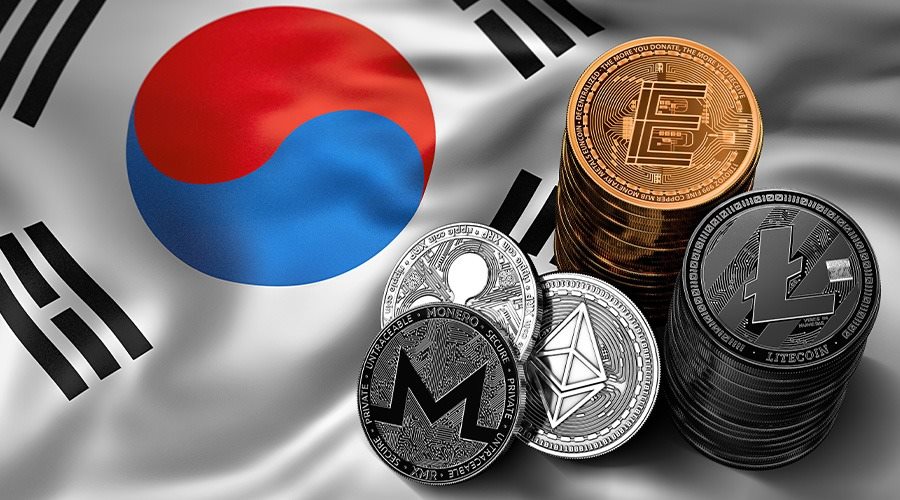South Korea’s financial authorities, led by the Korea
Financial Intelligence Unit (KoFIU), are planning to implement stringent measures
targeting cryptocurrency exchanges. Exchanges failing to meet the stringent
standards will face expulsion from the marketplace, according to a report by the KoreaTimes.
Authorities will expand the scope of evaluation to
block the entry of unfit virtual business operators into the Korean cryptocurrency market. This proactive approach aims to maintain market
integrity and protect investors.
The Korean government is considering suspension of suspicious transactions, even at a pre-investigation
stage. This move aligns with recommendations from the Financial Action Task
Force, a global anti-money laundering organization.
KoFIU’s annual work plan outlined key policy
directions and measures aimed at safeguarding the cryptocurrency industry.
Plans have been devised in consultation with industry experts and stakeholders. KoFIU will thoroughly examine cryptocurrency exchanges, focusing on anti-money laundering measures,
operational capacity, and consumer protection. Exchanges facing scrutiny
include those expecting to renew their licenses later in the year.
Stringent inspections align with the impending
enactment of Korea’s first protection law on virtual asset consumers, effective
July. Commissioner Rhee Yun-su emphasized the importance of institutional
improvements to ensure seamless industry operation.
South Korea’s Virtual Asset Regulations
Recently, The South Korean Financial Services
Commission (FSC) proposed changes to its reporting requirements for virtual
asset service providers targeting the employment of executives. The proposed amendment mandates regulatory approval
for executives joining crypto firms, giving the FSC authority over personnel
changes. This step will facilitate effective regulation of the industry and affect the renewal of VASP licenses.
By requiring regulatory vetting for executives
joining crypto firms, the FSC aims to ensure greater accountability and
transparency in personnel appointments. The regulator has the authority to
suspend licenses if any investigations into company personnel are
ongoing.
Besides that, South Korea’s financial authorities
are taking proactive measures. The proposed regulations restrict transactions
involving crypto mixers by virtual asset business operators, mitigating the
potential for illicit financial activities.
Last year, the FSC banned on using credit cards to
purchase cryptocurrencies in South Korea. By restricting credit card payments
on overseas virtual asset exchanges, the Korean government aims to curb money
laundering and speculative activities.
South Korea’s financial authorities, led by the Korea
Financial Intelligence Unit (KoFIU), are planning to implement stringent measures
targeting cryptocurrency exchanges. Exchanges failing to meet the stringent
standards will face expulsion from the marketplace, according to a report by the KoreaTimes.
Authorities will expand the scope of evaluation to
block the entry of unfit virtual business operators into the Korean cryptocurrency market. This proactive approach aims to maintain market
integrity and protect investors.
The Korean government is considering suspension of suspicious transactions, even at a pre-investigation
stage. This move aligns with recommendations from the Financial Action Task
Force, a global anti-money laundering organization.
KoFIU’s annual work plan outlined key policy
directions and measures aimed at safeguarding the cryptocurrency industry.
Plans have been devised in consultation with industry experts and stakeholders. KoFIU will thoroughly examine cryptocurrency exchanges, focusing on anti-money laundering measures,
operational capacity, and consumer protection. Exchanges facing scrutiny
include those expecting to renew their licenses later in the year.
Stringent inspections align with the impending
enactment of Korea’s first protection law on virtual asset consumers, effective
July. Commissioner Rhee Yun-su emphasized the importance of institutional
improvements to ensure seamless industry operation.
South Korea’s Virtual Asset Regulations
Recently, The South Korean Financial Services
Commission (FSC) proposed changes to its reporting requirements for virtual
asset service providers targeting the employment of executives. The proposed amendment mandates regulatory approval
for executives joining crypto firms, giving the FSC authority over personnel
changes. This step will facilitate effective regulation of the industry and affect the renewal of VASP licenses.
By requiring regulatory vetting for executives
joining crypto firms, the FSC aims to ensure greater accountability and
transparency in personnel appointments. The regulator has the authority to
suspend licenses if any investigations into company personnel are
ongoing.
Besides that, South Korea’s financial authorities
are taking proactive measures. The proposed regulations restrict transactions
involving crypto mixers by virtual asset business operators, mitigating the
potential for illicit financial activities.
Last year, the FSC banned on using credit cards to
purchase cryptocurrencies in South Korea. By restricting credit card payments
on overseas virtual asset exchanges, the Korean government aims to curb money
laundering and speculative activities.

